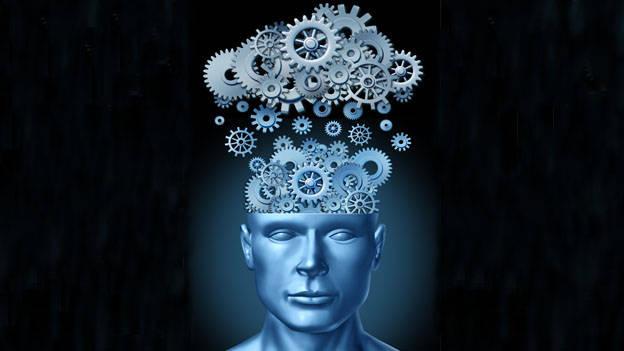Acquiring Knowledge at workplace – Naturally

Thus anything that is learned while working is a permanent learning as it gets stored in the subconscious mind.
Last month, I went to my native to take stock of my agro-products and crops. The weather department had predicted less rainfall and we naturally had to take immediate action to save the crops. The farm is supervised and managed daily by Parmeshwar. During my visit I happened to meet him while he was reviewing the crops. While taking stock of the situation we discussed the current state and forecasted the potential yield of the crops in light of less rains. Incidentally, the conversation took a deeper tone and he started detailing me nitty-gritties about the cotton-crop and its bio characteristics – how the delay in sowing makes difference in yield, what should be the ideal distance between 2 seeds while sowing, What should be the distance between two stems, how many pods should cotton plant have to get a yield of average 19-20 quintal per acre, how the plants are getting affected by cankerworm, when is the right time to spray pesticides, when to give dose of fertilizer, which combination of fertilizer is best suited at various development of crop, why it is necessary to change the pattern of crops and its place every season, etc.
I was completely amazed and surprised by his job knowledge and that too from a person who just has passed standard 4th in terms of so called “education". I asked him as to how he had learned this process and acquired thorough knowledge. In reply, I got an obvious answer: he has learned from his father – how – by observing him work, discussing, clarifying doubts while working and by replicating and applying what he does in the field. I saw wisdom and complete ownership in his learning process.
The essence of this episode is that the entire process of training actually happened naturally at workplace. Here the trainer - “father” and the learner, “Parmeshwar”, both, have not gone through any formal training programme on agriculture. Both of them have no feeling as - trainer is “teaching” or learner is “learning”. It happened so seamlessly that they both learned and practiced while working, i.e. by doing their duties - “Karma”. This reminds me of the great philosopher Vinoba Bhave”s thoughts on education where he stated three steps of acquiring knowledge or skill.
1. “Shruti” or “Shravan” (Acquire): One should build habit of “shravan” (acquire) by listening, reading and observing at workplace
2. “Smruti” (Memorise): Whatever one learns should be stored in mind so as to retrieve whenever required.
3. “Kruti” or “Seva” (Karma or Service): Whatever you have learned and memorized should be demonstrated through the work or karma.
In this case, Parmeshwar had gone through the above three steps and acquired knowledge without going in so called business school or colleges. He got the entire knowledge of agriculture while working i.e., performing his duty (“Karma”). This is the Natural learning process and this is possible only when work related training is imparted in the area of work. Krishna recited Geeta to Arjuna at workplace (battlefield). Hence it got digested. If Krishna would have taught it through coaching classes and Arjuna would have given examination, he would have failed. Thus to say, knowledge and work should not be separate. There is no knowledge without work and no work (Kruti) without knowledge.
In fact this process is inter-linked. Learning and getting knowledge is not a process which is acquired only by simply reading books or going through so called "presentations" or “e-learning” but also by performing work. We do not learn swimming by reading about it in books, but by actually diving in water. Vinoba further said that education or knowledge is a consequential by-product of working. And to acquire knowledge one should have 3 attributes.
1. “Pranipaatena” (Humbleness, Prostration): A person should be humble enough while learning new things from guru or mentor.
2. “Pariprashnena” (Curiosity): A person should be inquisitive and build habit of asking questions till satisfaction level is reached.
3. “Seva” (Service to guru): Here service doesn’t mean worshiping guru or massaging legs, but actively contribute in the guru’s work or mission.
Parmeshwar was very much instrumental in servicing his father’s (Guru) work. He took the mantle and continued the work that his father was doing. Materially, one could get an impression that he was merely working with his father or contributing in his normal labour. But, the outcome of that work is - he has learned entire process of agriculture. The important aspect here is that the knowledge or education is a consequential bi-product of the working. At my workplace, I tried to experiment the above process surprisingly, it worked well. I had asked my colleague to prepare an HR dashboard. Since he was a newcomer, I had explained him the objective and provided the parameters on which we would want to plot the performance of HR. He started his work by asking some data from concerned business managers. For this, he also had to interact with a few stakeholders and leaders. Further he understood that if he created a template and fill in the data, it would be easy for him to collate the data.
This led to standardization of data collection. He had to use various formulae, macros and logics to plot the trends and do analysis. He depicted all this data beautifully in the form of a presentation. Initially, he provided a deck and somebody from us used to do the presentation. Later on he started presenting the dashboard effectively. If we look into the entire process of his learning, it happened so naturally that one could say that he merely prepares the dashboard every month as a regular activity. What is so special about it? But, in reality, the outcome of his work is that he learnt following functional and soft skills:
1. Learned how to interact with seniors and colleagues to gather information.
2. Learned how to use formulae, macros and apply logic for different situations.
3. He also learned a) Attention to details; b) Doing prediction - what is most likely to happen; c) Description - relevance and relationship exists in data; d) Simulation - what could happen e) Prescription - What should we do.
4. Good presentation skill.
5. His creativity was unleashed during this process Here if we look into the process, the learning happened so naturally, that he will never forget what he has learned while working.
Thus anything that is learned while working is a permanent learning as it gets stored in the subconscious mind. My friends ask me, which is the best method of learning or acquiring knowledge. I wouldn’t prescribe any tool which is best to learn. It depends upon the need of the individual. You can even acquire it by simply chatting with intellectual people. In fact every person is perfect and complete product by nature. The only problem is that the completeness or inherited qualities he/she has inside remains unnoticed. Any tool or method that identifies or publishes his or her hidden talent or completeness is a best tool of learning. However the most effective tool to learn or to acquire new skill is when you perform your duties/ work. If I were a trainer or Manager or Mentor, I would ask employees, particularly new joiners to get busy with the work assigned to them and every day, I would discuss with them whatever difficulties they came across in course of their day’s labour. The education they have had up to now in their academics has consisted of nothing but lectures and limited practicals of the subject. And, if these get repeated from us also, they will never develop their skills or new learning. Our learning should not be mere work knowledge; it must be potent for action (work). It is possible to learn the things at work place – naturally when our trainer/mentor knows entire subject and is completely aware of all kinds of practical skills needed in the area of work. Else, he will be merely an “intellectual trainer” imparting bookish knowledge.










